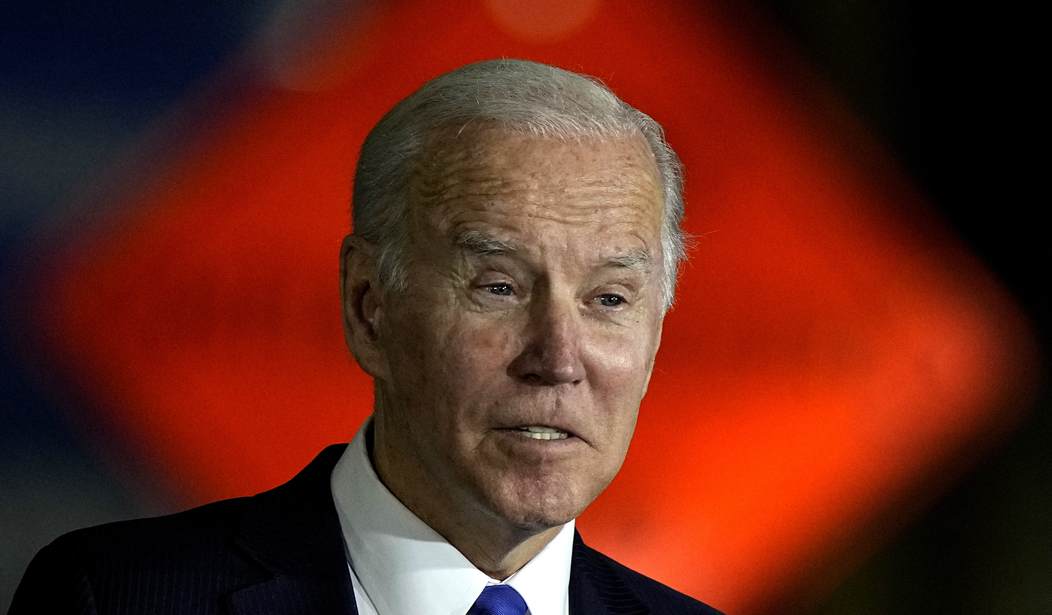One day after warning Russian President Vladimir Putin he would face "severe" economic sanctions, "like ones he's never seen," should Russia invade Ukraine, President Joe Biden assured Americans that sending U.S. combat troops to Ukraine is "not on the table."
America is not going to fight Russia over Ukraine.
"The idea that the United States is going to unilaterally use force to confront Russia invading Ukraine is not in the cards," said Biden. "We have a moral obligation and a legal obligation to our NATO allies," but "that obligation does not extend to ... Ukraine."
Anti-interventionists who have opposed bringing Ukraine into NATO may just have kept America out of a confrontation or war with Russia.
Yet hard negotiations lie ahead on the two demands Putin has made a condition of keeping his 100,000 troops on his side of the border.
First, there must be legal guarantees Ukraine will not be brought into NATO. Second, the U.S. and NATO must not arm Kyiv with offensive weapons that would present an intolerable threat to Russia.
Meeting these conditions would seem an easier proposition than getting them written into an agreement acceptable to Kyiv.
How, for example, does Biden get the Ukrainians to accept a U.S.-Russia deal that says their country can never be a member of NATO?
Russian military pressure on Ukraine, however, is but one of several crises where America finds itself at the center.
Biden this week ordered a diplomatic boycott of the Winter Olympics in China. U.S. athletes may participate in the games, but no U.S. government official will attend in a formal capacity.
Recommended
The White House says the purpose is to show disapproval of Beijing's "genocide" against the Uyghurs, its crushing of the democracy movement in Hong Kong and its threat to take over Taiwan.
Beijing has been contemptuous of the U.S. diplomatic boycott, but Canada, Australia and the U.K. followed America's lead and declared their own diplomatic boycotts.
The Winter Olympics will take place on the 50th anniversary of President Richard Nixon's historic trip, where the U.S., in the Shanghai Communique, acceded to the contention of Chairman Mao Zedong's People's Republic that Taiwan "is a part of China."
Under Jimmy Carter, the U.S. security treaty with Taiwan that dated back to the Korean War was allowed to lapse, and the U.S. recognized the PRC as the sole legitimate government of China.
As Putin may see his destiny and legacy as returning Ukraine into a closer union with Russia, so Chinese President Xi Jinping seems to see his crowning achievement in the return of Taiwan to the motherland after almost a century of separation.
What will the Americans do if China attempts to use force to bring Taiwan back? As with Ukraine, the U.S. has no treaty obligation to fight to maintain the independence and sovereignty of the island of 24 million.
Yet U.S. inaction if China attacked, invaded or forced the submission of Taiwan to Beijing would shake the credibility of U.S. treaty commitments to Japan, South Korea, the Philippines and Australia.
Still another crisis may be brewing with Iran.
This week, CIA Director William Burns said there was no indication that Tehran is attempting to weaponize its nuclear program.
The spy agency "doesn't see any evidence that Iran's supreme leader has made a decision to move to weaponize," said Burns to the Wall Street Journal's CEO Council.
Yet, the 2015 nuclear deal, from which President Donald Trump withdrew, appears on the brink of collapse. The administration is being pushed by the Israelis and the hawks on Capitol Hill to break off the negotiations and prepare for military action.
Iran, however, a predominantly Shia nation of 85 million, is not without allies. There is a Shia majority in Iraq. Iran has trained and armed militias in Syria as well as Iraq. It sustains Hezbollah in Lebanon, Hamas in Gaza, and the Houthi rebels who occupy the Yemeni capital and most of the northern half of the country.
Why does Iran not already have the bomb?
The answer seems a simple one. While the Iranians have the knowledge, capacity and experience to build a bomb, they have, like Japan, Brazil and South Korea, elected to forgo the option, as the risks inherent in an Iranian bomb are greater than any probable rewards.
Not only has the ayatollah declared atomic weapons immoral, but it is difficult to see what Iran would gain from testing a nuclear weapon.
Tehran's great foe, Israel, has an arsenal of nuclear weapons with the ability to deliver them by air, submarine-based cruise missile or ballistic missile. And a nuclear Iran would soon lead to a nuclear-armed Saudi Arabia, Turkey and Egypt, Sunni nations all. How would that benefit Tehran?
Truly, Biden has a full plate of foreign policy crises.
His guiding principle in dealing with Russia, China and Iran should be a simple one: Consistent with securing the vital national interests of the USA, keep us out of what Winston Churchill called "unnecessary wars."
For such are invariably the death of great powers.

























Join the conversation as a VIP Member